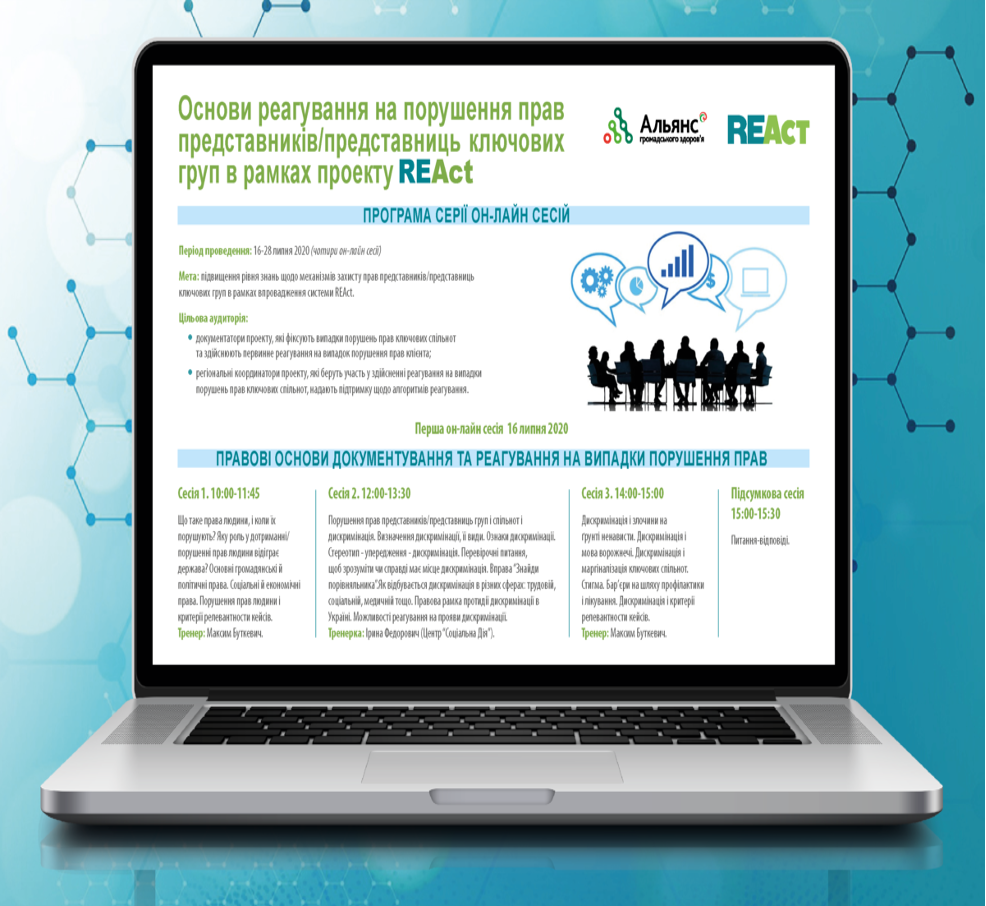On July 16-28, 2020, a series of online trainings was held to highlight the fundamentals of responding to rights violation incidents involving key communities members within the REAct project. Since response is an important component of the REAct project, the purpose of the training was to increase the REActors’ level of knowledge about the mechanisms and tools needed to ensure an effective response to rights violation incidents.
The following important topics were reviewed and discussed during the training events:
∙ Definition and types of human rights;
∙ The role of the state in addressing rights violation incidents;
∙ Definition and signs of discrimination;
∙ Typical rights violations by police and health care personnel;
∙ Mechanisms to protect the rights of key communities;
∙ Legal aid services and organizations;
∙ Paralegal assistance;
∙ Aspects of interaction with legal counsel;
∙ Resources and tools of advocacy.
The experience of the pilot regions in responding to rights violation incidents involving key communities was also presented.
At the end of the online trainings, participants were provided with a space for discussion (the Living Library). The four virtual “rooms” discussed legal issues concerning individual communities, i.e., people who inject drugs, sex workers, the LGBT community and adolescents in risky situations. Particular attention should be given to the experts who were involved in the training:
∙ Pavlo Skala (ICF “Alliance for Public Health”);
∙ Oksana Pokalchuk (Amnesty International);
∙ Oksana Guz’ (private lawyer);
∙ Sheilat Afolabi (Ukrainian Legal Aid Foundation);
∙ Iryna Fedorovych (Social Action Center);
∙ Serhiy Pernikoza (Association of Ukrainian Human Rights Monitors on Law Enforcement);
∙ Natalia Kozarenko, Serhiy Movchan (Ukrainian Helsinki Human Rights Union);
∙ Olga Klymenko (TB People Ukraine);
∙ Andrii Rokhanskyi (NGO The Legal Analytics and Strategies Institute);
∙ Ruslana Panukhnik (KyivPride NGO);
∙ Maksym Butkevych (National Coordinator of the REAct Project in Ukraine).


